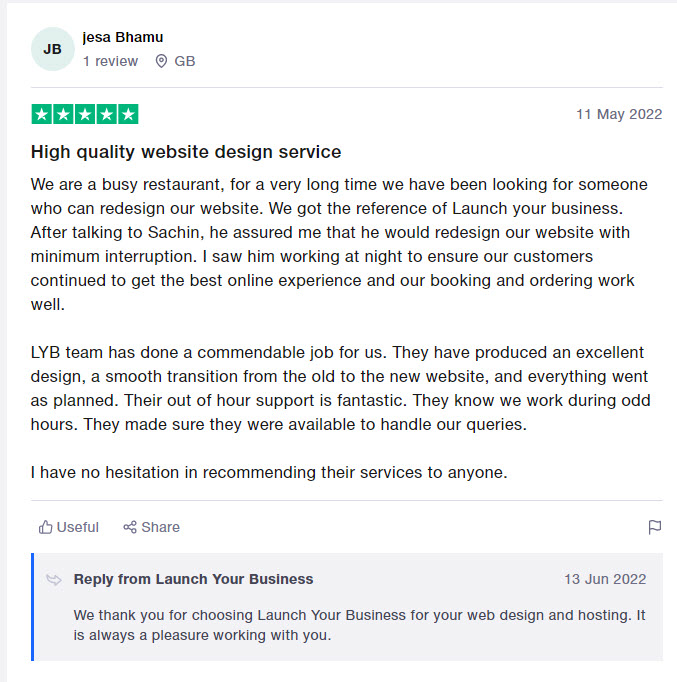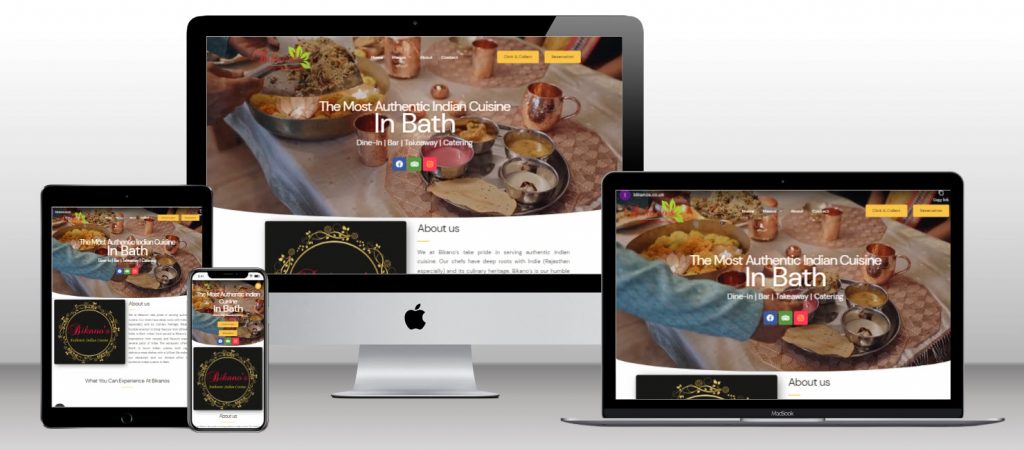We are pleased to inform you that we have just finished developing a new restaurant website for Bikanos, an Indian restaurant. It is extremely fast and completely optimized to attract a growing number of customers. This website loads in less than a second, which is one of the most important SEO parameters. We have created several professional web design templates in recent years to meet the needs of our clients’ businesses.
Off-page SEO is all about establishing authority for your website outside your website. It would help if you also have other websites to “vouch” for you to indicate to Google and other search engines that your website is worthwhile and trustworthy, thus increasing your ranks. Off-page SEO for restaurants is primarily dependent on two factors: backlinks and social media.
How can you utilise off-page SEOs to boost your website’s authority?
Obtaining links from high-authority websites is critical in growing your domain and page authority. For that purpose, you need to consider contacting food-related web businesses. You may offer to write a guest post for them based on your experience as a restaurant owner/manager, with a link to your website included in the article or author bio. Restaurant guest blogging is a lucrative sector. Try to get your business on any list of recommended eateries. Include a negotiating chip, such as a promo code for their guests. We do not, however, encourage flooding their comments area with links to your restaurant’s website. Not only is it a mortal sin in Google’s eyes, but it will benefit you far more to establish a connection with that individual. Who knows, it may even lead to a long-term collaboration.
Remember that the website you approach should be relevant to your sector. If you are a restaurant, having a hyperlink on a vehicle website would not benefit you. And as a general guideline, if you have a restaurant blog, attempt to create great material that people naturally want to connect to.
Influencers in the community
You may also reach out to local influencers and bloggers through email. Restaurant influencer marketing is a burgeoning sector that has the potential to boost both restaurant traffic and search engine results. Local foodies may be willing to promote your business to their friends and followers in exchange for free meals or monetary compensation. Having dependable food critics say lovely things about your cuisine may go a long way. Find foodies in your area; it may seem like a bother at first, but it will pay off.
Business Listings
Apart from having backlinks on high-authority websites in your field, adding your restaurant on attractive business listings like Google My Business, Yelp, and TripAdvisor is a simple approach to earning extra links. Creating a Google My Business page will not only provide you with a high-quality backlink, but it will also allow more people to locate you online. TripAdvisor and Yelp are similarly affected. Use the platforms to add information about your company, beginning with the URL of your website.
This also works in the other direction.
Remember to include your GMB, TripAdvisor, and Yelp profiles on your website so clients know they can discover (and review) you on those sites.
Social Media Off-Page SEO for Restaurants
While the link between social media and off-page SEO outcomes is less evident, it does not mean that social media is unimportant for restaurants. Although social media may not immediately aid your SEO efforts, having a social media presence and managing your profiles will. All these accounts should lead back to your website and assist you in making more sales. Social media is ideal for engaging customers and encouraging them to spread your content. This will increase your followers and, in turn, help with SEO because social shares bring authority and reliability in Google’s eyes.
Restaurant Facebook SEO
Use your Facebook profile to connect with clients and post information about your restaurant (website, opening hours, menu, special deals, etc.). Check that the information matches that on your website and other business directories. If you have varying operating hours on multiple platforms, neither Google nor your consumers will enjoy it. Ads can also be used to advertise an offer, a daily bargain, a contest, etc. Make the advertisement button direct people to your website, where they can buy food or reserve a table online.
Instagram Marketing for Restaurants
Instagram is a great place to share images of your cuisine, interior, workers, behind-the-scenes glances, and so on. Do anything that makes your consumers feel more connected to you. Make your profile a business profile so you may include a link in your bio. The link should take you to your homepage or online ordering page. Don’t overlook the geotag option when using Instagram. Geotags are location tags that may be added to any Instagram photo. When you add a geotag, you assist clients looking for photos in a specific location in discovering you. You also inform folks about your restaurant’s location, inviting local foodies.
Have you ever thought about how people discover new restaurants? Many people use Google to find “restaurants near me,” which is where on-page restaurant SEO and off-page restaurant SEO come into play. A successful website for a newly opened restaurant cannot exist without good SEO. To benefit from off-page SEO for restaurants, create high-quality content for your restaurant website and concentrate on obtaining links and maintaining a solid social media presence.
Customer Review


